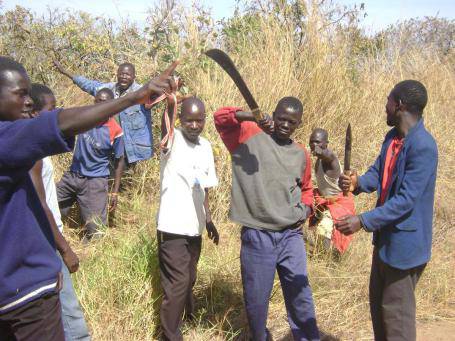
 Radio Wang Ooh
Radio Wang Ooh

 Radio Wang Ooh
Radio Wang Ooh
17 April 2025, 1:29 PM
By David Ojok Jr.
The Community Liaison Officer at Patongo Central Police Station, Agago district, has issued a strong warning to youths who are preventing their retired and elderly parents from selling land or animals to support themselves.
A.I.P. Oyet Francis expressed concern over growing laziness and entitlement among some youths. He noted that many young people are failing to build independent lives and instead are waiting to inherit land and property — in some cases even wishing for the death of their parents.
“Parents who have worked hard deserve the right to decide what to do with their property. It’s deeply disturbing that some children are waiting idly, or even hoping for an inheritance, rather than working for themselves,” he said.
He also called on the public to understand Uganda’s land tenure system, warning that ignorance was fuelling disputes and disrespect for legal land ownership.
“People must understand that not all land is owned the same way. We have customary, freehold, mailo, and leasehold land systems, and each comes with different rights and responsibilities,” he emphasised.
His comments reflect a broader generational debate in communities across northern Uganda, where land remains one of the most valuable and contested resources.
However, not all young people agree with the officer’s views. Okema Bosco, a 17-year-old from Lapirin village in Lukole subcounty, argued that in some cases, parents themselves are mismanaging family resources.
“Some parents sell land and spend the money on alcohol or marrying new partners, instead of investing in the family’s welfare or their children’s education,” Okema said. “Children should at least have a say, especially when it comes to family land.”
His statement highlights growing tensions between generations over land decisions — a sensitive issue in many parts of Uganda, especially in Agago.
Speaking recently at a land awareness forum in Gulu, Esther Obaikol, a land governance expert and former Executive Director of the Uganda Land Alliance, said, “The problem isn’t just who owns land — it’s that many people don’t understand their rights or the legal process. This is why land wrangles continue to increase.”
Likewise, the Minister of Lands, Housing, and Urban Development, Hon. Judith Nabakooba, has in several forums urged families to document land ownership and make clear succession plans:
As land continues to be a lifeline for rural communities, leaders are calling for stronger awareness, responsible ownership, and intergenerational dialogue to avoid destructive conflicts.